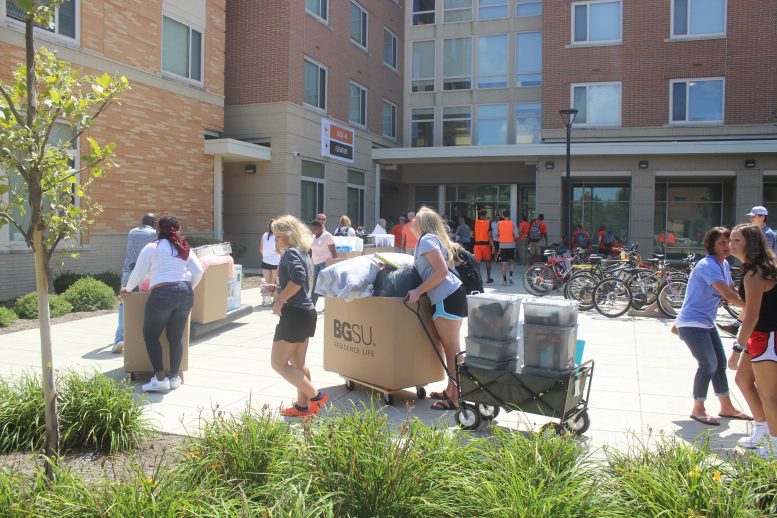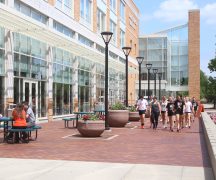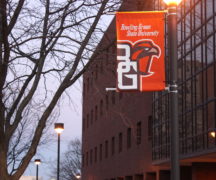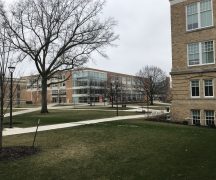By DAVID DUPONT
BG Independent News
The Bowling Green State University trustees Friday set the room and meal rates for the incoming freshman class.
This is the third year BGSU students enter under the Falcon Tuition Guarantee program that freezes almost all costs for four years.
The average rate of increase 2.8 percent. The rate of increase for a “standard double room,” the rate that’s reported to the state, is up 2.7 percent.
That standard double, will cost an incoming freshman $3,025 a semester, or $80 more than is being paid by students who entered in fall, 2019.
Room rates vary depending on the dorm and the amenities provided. The least expensive will be $2,035 for an economy triple in Conklin, Offenhauer or Founders. The most expensive would be $4,325 for a “super single,” one person occupying a double room in Centennial, Falcon Heights, or one of the Greek housing units.
Stoll noted that residence halls and meals are auxiliary services, and must pay for themselves. “There’s no backstop from the institution.”
That’s an important factor in setting them. The room rates need to take into consideration not just current operating expenses and debt service, but also the cost of future renewals and renovations.
Now with the Falcon Guarantee, once set for a cohort those rates cannot be changed.
The increase in cost for the incoming class above what were set for the class of 2019 is higher, Stoll said, than recent increases.
She cited increases in the cost of commodities and an increase in the cost of fresh produce caused by tariffs.
The increase will be 3.5 percent. The university reports its Bronze plan rate of $1,806 per semester, an increase of $61, or $3.92 a week. The priciest plan, the Gold, will increase by the same rate, to $2,332 a semester, or $79, about $5 a week
Looking at the room and board together, Stoll said, BGSU remains the most “cost-effective” in the four-year state universities.
The cost of a “commuter plan” would also go up 3.5 percent to $342 a semester. Stoll said about 900 of those plans are sold to students living off campus, faculty and staff. More students use BG Bucks to buy food, though there is a “swipe discount” if they buy a meal plan.
Trustee Ava Harter questioned whether if the supply chain was affected by the coronavirus whether the university would come back and ask for an increase.
“No, we wouldn’t,” Stoll said. That would have to be factored in when rates are set for the next entering class.
The board also approved changes in academic special course fees. Aside for fees for two new graduate programs and an increase for speech-language pathology because of an upgrade in equipment, the fees all were for aviation studies.
These are “pass through” fees which the university collects on behalf of North Star Aviation, which provides the flight instruction.
In the past, Stoll has explained, the university collects the fees so students can use scholarship money to pay for them.
Trustee Richard Ross said the list this year was short but he knows the university assesses far more. He requested that a comprehensive list of those fees.
Stoll noted those fees are all listed on the university’s bursar’s page.
Ross recalled there was a move to prohibit special course fees.
President Rodney Rogers said that the university is “very frugal” in this area, and any fee or fee increase must go through a rigorous review and most are rejected.
When it came time to vote, Ross cast the lone “no” vote on increasing fees. Indeed, it was the lone “no” vote on any of the motions that came before the board.





